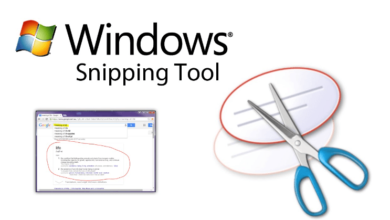Everything You Ever Wanted to Know About SEO

SEO is an important tool for any business with an online presence. It is a process of optimizing a website for Google search with the goal of earning higher web traffic levels and improving the visibility of the site.
The first step in SEO is to select keywords that best reflect the content on the website. Once these keywords have been selected, they must be strategically placed throughout the site in order to maximize their potential. In addition to placing keywords throughout the website, businesses must also create quality content that is relevant to their target audience. The final step in SEO is to track and monitor results in order to make necessary changes and improvements over time.
If you have ever interacted with staff who work in a reliable, you may have heard them say that SEO can be a complex and ever-changing process, but it is essential for businesses who want to compete online. By taking the time to understand how SEO works and implementing strategies accordingly, businesses can ensure that their website stands out from the competition.
Factors Affecting SEO
There are many factors that affect SEO, and it can be difficult to keep up with all the changes. However, there are some general principles that remain constant. The following are some of the most important factors affecting SEO:
- Keywords: Identifying and targeting the right keywords is essential for any successful SEO campaign. Research your target market and find out what keywords they are using to search for products or services like yours. Then, make sure those keywords are included in your website content, titles, metatags, and other places where search engines look for them.
- Links: Links from other websites to yours help improve your website’s ranking in search results. So try to get high-quality links from reputable websites. You can also create link bait – content that is so good that other website owners will want to link to it.
- Social media: Social media activity can also influence your website’s ranking in search results. Make sure you’re active on social networks and encourage others to share your content.
- Mobile-friendliness: More and more people are using mobile devices to access the internet, so it’s important that your website is optimized for them. This means having a responsive design that looks good on all screen sizes and making sure your site loads quickly on mobile connections.
- Freshness: Search engines favor websites that regularly publish new content. So if you want your site to rank well, make sure you’re
Keyword Research and Selection
The most important part of SEO is keyword research and selection. This is the process of finding and choosing keywords that are relevant to your business, products, or services, and that have a high search volume (the number of people searching for that keyword).
There are a few different ways to do keyword research:
- Use a keyword research tool like Google AdWords Keyword Planner or Moz Keyword Explorer. These tools will show you the search volume for various keywords, as well as other data like competition level and suggested bid price.
- Look at your website analytics to see which keywords people are already using to find your site. You can usually find this information in the “Search Engine Optimization” section of your analytics program.
- Brainstorm a list of potential keywords with your team or customers. Ask them what they would search for if they were looking for your business, products, or services.
Once you have a list of potential keywords, it’s time to select the ones that you want to target. There are a few factors to consider when making your selections:
- Relevance: The keyword should be relevant to your business, products, or services.
- Search Volume: The keyword should have a high enough search volume that it’s worth targeting. Generally speaking, you want to aim for keywords with at least 1000 monthly searches.
- Competition Level: The keyword should have low enough meaning to enhance effective competition.
On-page SEO Practices
There are a number of things you can do to optimize your website for Search Engines. Here are some key On-Page SEO practices:
- Use keyword-rich titles and Meta descriptions: This helps search engines understand what your page is about and can result in better Rankings.
- Structure your content using headlines and subheadings: This makes it easier for search engines to crawl your content and understand its hierarchy.
- Use internal linking to help users navigate your site: This also helps search engines understand the structure of your website and can lead to higher Rankings.
- Optimize your images by including alt text: This allows search engines to index your images, which can lead to increased traffic from image searches.
- Use external linking to build authority: This shows search engines that your website is credible and can help improve your Rankings.
Off-page SEO Practices
Off-page SEO is all about optimizing your website to rank higher in search engine results pages (SERPs). There are a number of different techniques you can use to improve your website’s off-page SEO. Here are some of the most effective ones:
- Guest posting: This involves writing articles for other websites in your niche and then including a link back to your own site. Guest posting is an excellent way to get high-quality backlinks from authority sites.
- Directory submissions: Submitting your site to online directories can help increase its visibility and improve its chances of being found by potential customers.
- Social media marketing: Promoting your website and content on social media platforms like Twitter and Facebook can help drive traffic to your site and improve your off-page SEO.
- Forum marketing: Participating in online forums related to your niche is a great way to build relationships with other industry professionals and get exposure for your website.
- Blog commenting: Leaving comments on other people’s blogs is a great way to engage with them and promote your own site at the same time.
How to Audit Your Website for SEO
If you want to make sure your website is optimized for search engines, you need to audit it regularly. Here’s how:
- Check your title tags. Make sure each page has a unique, descriptive title tag that includes your target keywords.
- Inspect your Meta descriptions. Like title tags, Meta descriptions should be unique and keyword-rich.
- Analyze your header tags. H1 tags should be used for your most important keywords, while H2 and H3 tags can be used for secondary keywords.
- Evaluate your website’s content. Is it well-written and informative? Does it include the keywords you’re targeting? If not, it’s time to make some changes.
- Take a look at your website’s structure. Is everything easy to find? Are your pages properly linked together? If not, visitors (and search engines) may have a hard time navigating your site.
- Check your website’s speed. A slow website can hurt your rankings and frustrate visitors. Use Google’s Page Speed Insights tool to see how quickly your pages load and identify ways to improve speed.
- Ensure that your site is mobile-friendly. With more and more people using mobile devices to access the internet, it’s important that your website is designed for small screens. Use Google’s Mobile-Friendly Test tool to see if your site passes muster.
Measuring and Tracking Results from SEO Efforts
As the saying goes, what gets measured gets improved. The same is true for SEO. By measuring and tracking the results of your SEO efforts, you can adjust your strategy as needed to ensure that you’re getting the most bang for your buck.
There are a number of ways to measure and track the results of your SEO efforts. One way is to track your website’s organic traffic using Google Analytics. This will give you an idea of how many people are visiting your site as a result of your SEO efforts.
Another way to measure the results of your SEO efforts is to track the keyword rankings of your website on search engines. This can be done using a tool like Moz’s Keyword Explorer. By tracking your keyword rankings, you can see how well your site is performing for specific keywords and make adjustments accordingly.
Finally, it’s also important to monitor backlinks to your website. This can be done using a tool like Ahrefs’ Site Explorer. Tracking backlinks will give you an idea of which sites are linking to yours and how valuable those links are.
By measuring and tracking the results of your SEO efforts, you can fine-tune your strategy for optimal results.
Common Mistakes to Avoid in SEO
- Not keyword research
- Not mobile-friendly
- Keyword stuffing
- Broken links
- Duplicate content
- Hidden text or links
- Doorway pages
- Negative SEO
- Over-optimization
- Not monitoring your SEO progress
Benefits of Hiring an SEO Agency/Expert
When it comes to SEO, there are a lot of benefits to hiring an agency or expert. Here are just a few:
- Save time – One of the biggest benefits of hiring an agency is that it will save you a lot of time. Trying to do everything can be very time-consuming, and it can be difficult to keep up with all the latest changes in the world of SEO. An agency will take care of all of that for you so that you can focus on other things.
- Get results – Another big benefit is that you are more likely to see results when you hire an agency. They have the experience and knowledge necessary to help your website rank higher in search engines and get more traffic.
- Stay up-to-date – As mentioned above, things in the world of SEO are always changing. An agency will make sure that your website is always using the latest and most effective strategies so that you don’t fall behind your competitors.
- Peace of mind – When you hire an agency, you can rest assured knowing that someone is taking care of your website’s SEO for you. This can give you peace of mind and allow you to focus on other aspects of your business.
Conclusion
SEO is an essential tool in any digital marketing campaign, and it’s important to keep track of the ever-changing landscape. We hope this article has helped you understand some basic concepts surrounding SEO and given you helpful tips on how to use search engine optimization effectively. As technology continues to evolve and change, so will the rules surrounding SEO. Keep up with best practices, formulate a plan that works for your business goals, and never be afraid to try something new!




